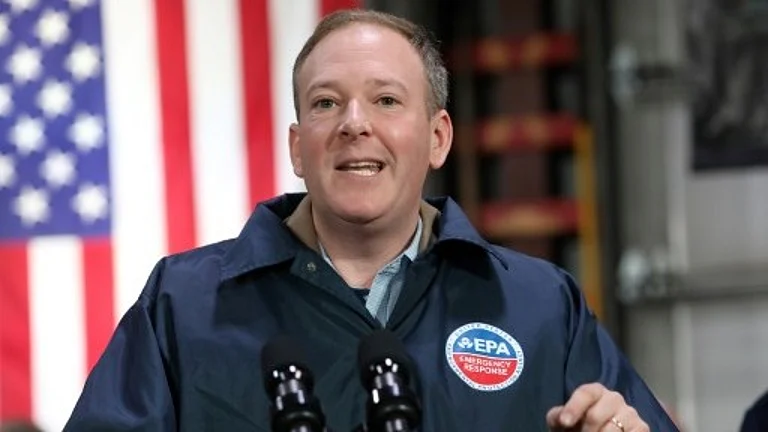
EPA proposes repealing the 2009 endangerment finding that forms the foundation of US greenhouse gas regulations.
Revocation would end emissions limits on vehicles, power plants, and oil and gas operations.
Automakers back the move, while environmental groups vow legal challenges amid worsening climate impacts.
The Environmental Protection Agency (EPA) proposed to revoke a key scientific finding on July 29. Known as the “endangerment finding” published in 2009, the finding claims that six greenhouse gases are a threat to public health and must be regulated under the Clean Air Act.
Signed by then-Administrator Lisa Jackson in 2009, the finding has been applied by the EPA to regulate sources of pollution including cars, power plants, planes and oil and gas operations.
On the basis of this finding, the EPA has regulated greenhouse gas emissions from new motor vehicles, along with other sources of climate pollution.
Administrator Lee Zeldin announced the repeal of the endangerment finding on the Ruthless podcast by saying that it “will be the largest deregulatory action in the history of America”.
“With this proposal, the Trump EPA is proposing to end sixteen years of uncertainty for automakers and American consumers,” said EPA Administrator Zeldin.
“In our work so far, many stakeholders have told me that the Obama and Biden EPAs twisted the law, ignored precedent, and warped science to achieve their preferred ends and stick American families with hundreds of billions of dollars in hidden taxes every single year. We heard loud and clear the concern that EPA's GHG emissions standards themselves, not carbon dioxide which the Finding never assessed independently, was the real threat to Americans’ livelihoods. If finalised, revoking the Endangerment Finding and resulting regulations would end $1 trillion or more in hidden taxes on American businesses and families,” Zeldin added.
Legal Roots of Finding
The Supreme Court ruled in Massachusetts v. EPA in 2007 that greenhouse gases are a form of air pollution that can be regulated under the Clean Air Act. However, it deployed EPA with the task of making a scientific finding about whether the gases harm public health.
The EPA published the endangerment finding in 2009, based on the extensive scientific evidence and public input to definitively state that greenhouse gases, which cause climate change, threaten health and the welfare of current and future generations.
EPA Climate Rules Threatened
The move would end EPA regulations on greenhouse gases emitted by vehicles from lightweight cars to heavy-duty trucks, while also diluting rules that limit power plant emissions and control the release of methane by oil and gas companies. The EPA’s new proposal argues that Congress, in the Clean Air Act, does not give the agency the authority to regulate greenhouse gas emissions.
The automakers and the oil industry praised the proposal, lauding it as a move that would give freedom to consumers to choose between gas, hybrid or electric cars rather than having the government dictate the market, according to The Washington Post.
Meanwhile, environmental groups resolved to challenge the repeal. David Doniger, Senior Attorney at the Natural Resources Defense Council, an advocacy group, told The Washington Post that his group plans to submit comments and take the EPA to court if they are not addressed.
Revocation of the finding comes at a time when climate change has become apparent with 2024 declared as the hottest year on record and natural disasters impacting regions across the world with deadly impacts.






























